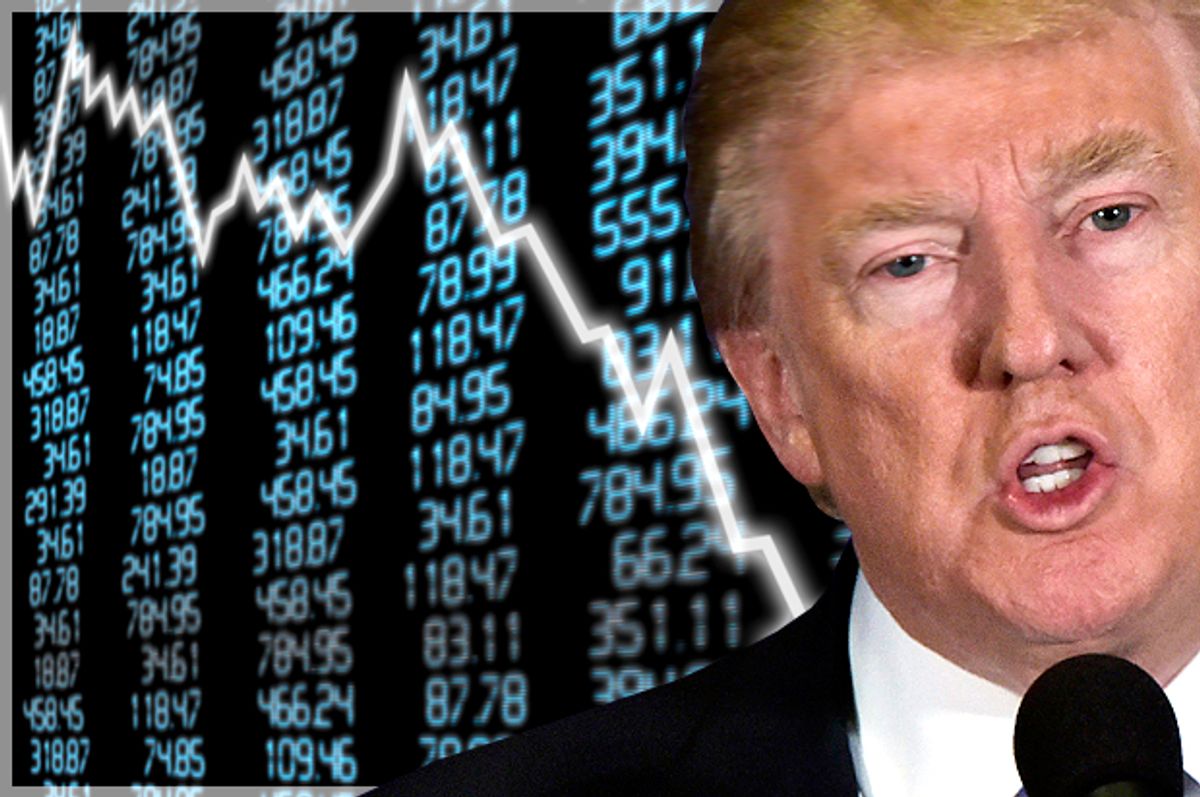As the Dow Jones suffered its biggest single-day drop in history, President Trump was mute on the bad economic news. To the contrary — the president was out celebrating the American economy. “Thanks to the historic TAX CUTS that I signed into law, your paychecks are going way UP, your taxes are going way DOWN, and America is once again OPEN FOR BUSINESS!” the president wrote on Twitter.
http://twitter.com/realDonaldTrump/status/960614513224667136
The markets disagreed with his assessment. Today, Monday, February 5th, the Dow Jones had its worst one-day fall ever, at least in terms of points — falling 1,175 points, from 25,338 to 23,924, and in the process shedding 4.6 percent of its total value. Meanwhile, the president spent the day in Greater Cincinnati, where he gave what amounted to a campaign rally at a factory while heralding the amazing economy that he believes he has precipitated.
“America is once again open for business,” the president told a cheering crowd, echoing his tweet, as Cincinnati.com reported. "It's amazing what people with good ideas can do … Wait til you see GDP over the next few years. Wait til you see what we're going to do,” he continued.
Since last week, the Dow Jones Industrial Average, a stock index that is considered a bellwether on the greater state of the economy, has fallen precipitously. On January 29, 2018, the Dow opened at 26,584 points. It has dropped 10 percent in eight days.
Granted, the economy is not the stock market, and vice versa, as economists and analysts remind us. However, many Americans, even those of few means, have skin in the game in the day-to-day machinations of the trading floor — often by virtue of pension funds or retirement plans tied to the stock market.
Indeed, as the stock market roared over the past decade — from a nadir of 6,443.27 in 2009 to its zenith last month of 26,616.71— income inequality in the United States also soared to new heights. As Jonathan J.B. Mijs writes in The Conversation:
The top 10 percent today take home 30 percent of all income, and control over three-quarters of all wealth. We have returned to the level of income inequality that marked the Great Depression of the 1920s and 1930s.
From 1973 to today, the gap between productivity and wages veered open even wider. That means we as we workers have gotten more productive in terms of making money for our employers, we’re not seeing any gains from that productivity. As the Economic Policy Institute explains:
From 1973 to 2016, net productivity rose 73.7 percent, while the hourly pay of typical workers essentially stagnated—increasing only 12.5 percent over 43 years (after adjusting for inflation). This means that although Americans are working more productively than ever, the fruits of their labors have primarily accrued to those at the top and to corporate profits, especially in recent years.
So yes, the economy isn’t the stock market, and the rising tide of the stock market hasn’t lifted all boats. Far from it. But the market’s dips have the potential to hurt everyday workers, too.



Shares